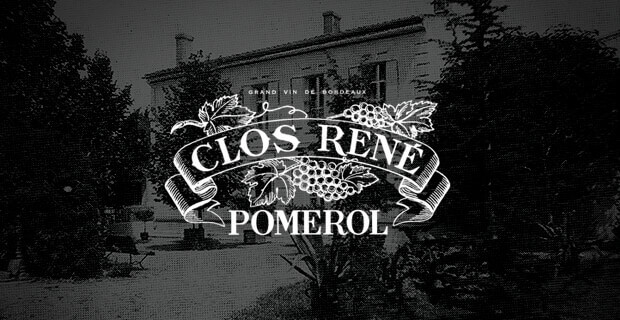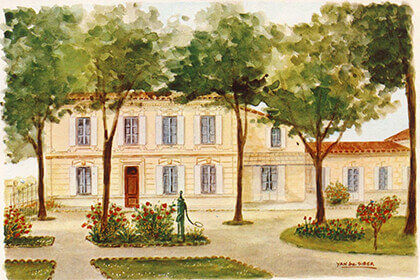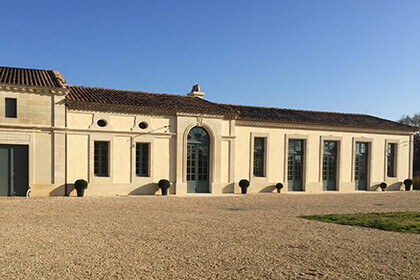Clos René Wines
Situated on the western side of the appellation of Pomerol on the Right Bank of Bordeaux, Clos René dates back to the mid-18th century, when it was called Clos Reney. The estate is currently owned by...Read More









Clos René | A Classic, Reliable and Representative Pomerol

Located on the western edge of the Pomerol appellation is the historic estate of Clos René, whose classic Bordeaux château was constructed over a century ago. Expanding over 18 hectares, the vines of Merlot, Cabernet Franc and Malbec grow in gravelly and sandy soils, and are managed through a sustainable, environmentally-friendly approach to viticulture. The wines of Close René have become known as true classics of Pomerol, consistent from one vintage to the next, and excellent values for price. These seductive, open-knit Pomerol wines offer luscious, jammy red and black fruit, along with hints of caramel, roasted coffee and touches of truffle on the finish, evidence of superb oak integration.
The History of Clos Rene in Pomerol
Clos René is one of the older estates in the Pomerol appellation, located on the Right Bank of Bordeaux, dating back to the mid-18th century. It was actually originally called Clos Reney, and why the estate lost the final “Y” at the end of its name remains a mystery till this day. The château pictured on the iconic labels of the estate wine was constructed in 1880. In the late 1970’s, Clos René was one of the very last estates in the Pomerol appellation to begin bottling its wine at the château, having for over a century sold their wine in barrel to negociants who would then bottle it. Today, the family estate is co-owned by the Garde and Laserre families and managed by Jean-Marie Garde.
Viticulture and Winemaking at Clos Rene
Clos René covers roughly 18 hectares of vineyards in Pomerol, planted with roughly 60% Merlot, 30% Cabernet Franc and 10% Malbec, a proportion reflected in the estate’s signature blend. In fact, Clos René has one of the largest plantings of Malbec in the Pomerol appellation and on the Right Bank of Bordeaux in general. The vineyard is situated in the far west of Pomerol, south of Lalande de Pomerol and near Château de Sales. The vines, which are 35 years old on average, stretch their roots deep into soils of gravel and sand, upon a subsoil of hard-pan clay. The climate here is quite characteristic of both Saint-Emilion and Pomerol – more continental than the more maritime climate of the Médoc, with more rainfall during the springtime and less in the winter and summer. The vineyard of Clos René are cultivated by means of an environmentally friendly and sustainable approach, in order to ensure fruit of the highest possible quality.

The winemaking at Clos René is quite traditional, with alcoholic fermentation taking place in temperature controlled cement vats and malolactic fermentation in tank. The wines are aged for an average of 18 months in oak barrels, out of which only around 25% new. The winemaking team at this Pomerol estate prefers to allow the delicate qualities of the fruit to shine through in the glass, rather than suffocating the latter with too much new oak. In the past, Clos René has worked with famous Bordelais consultant Michel Rolland. Today, Thomas Duclos consults at the Pomerol estate.
The Signature Style of Clos Rene
If there is one adjective most commonly used to describe the wines of Clos René, it’s probably “classic,” in that it is a “classic Pomerol,” and excellent representation of this unique Right Bank appellation. While the exact makeup of the blend changes with vintage, it tends to stay pretty close to 70% Merlot, 20% Cabernet Franc and 10% Malbec, which is more Malbec than can be seen in most Pomerol wines these days. Clos René is a straight-forward wine, full-bodied and candid in its character. These wines tend to develop beautifully with age, and offer a very good value for price. The wines of Clos René are also popular for their consistency, in that the estate maintains a high standard of quality from one vintage to the next.

The Clos René 2016 displays a very dark, deep red colour in the glass. On the palate, this wine offers very light, fine tannins and delicious black fruit, including blackberry and blueberry, along with notes of undergrowth and leather. The finish shows off a superb integration of oak, with touches of truffle coming through as evidence of the latter. The 2014 vintage offers hints of smoke and strawberry jam on the nose, along with silky tannins and an overall finesse in its structure. The 2013, with its dark purple colour, displays a very intense nose, dominated by red fruits and truffle. And the Clos René 2012 is a complex yet harmonious Pomerol, with juicy fruit and hints of spice on the nose, along with ripe, rich tannins coating the palate.
These wines are best aged for at least three to five years before opened. Younger vintages will benefit from decanting for around one hour before being served. The wines of this estate will make for the perfect centrepieces at a family gathering, shining particularly brightly when paired with classic meat dishes made with veal, pork lamb or duck.